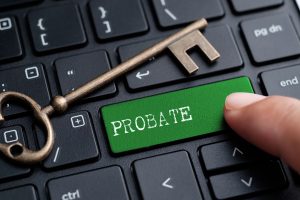 When a person dies and leaves a Last Will and Testament, the next step is to commence a proceeding to probate the Will. The probate process can be very complicated. In the first instance, it is important to locate the original of the Last Will and Testament. When the original document cannot be located and only a copy is available, it is very difficult to complete probate. Surrogate’s Court Procedure Act Section 1407 entitled “Proof of lost or destroyed will” must be complied with. One of the biggest hurdles to overcome is that if the original of the Will was known to have been in the possession of the decedent and cannot be found, then the presumption is that the original Will was revoked.
When a person dies and leaves a Last Will and Testament, the next step is to commence a proceeding to probate the Will. The probate process can be very complicated. In the first instance, it is important to locate the original of the Last Will and Testament. When the original document cannot be located and only a copy is available, it is very difficult to complete probate. Surrogate’s Court Procedure Act Section 1407 entitled “Proof of lost or destroyed will” must be complied with. One of the biggest hurdles to overcome is that if the original of the Will was known to have been in the possession of the decedent and cannot be found, then the presumption is that the original Will was revoked.
The probating of a Will in Surrogate’s Court requires that all of the decedent’s next of kin, known as distributees, be notified concerning the Court case. The reason for such notification is to afford the distributees the opportunity to contest the Will. In many cases, a distributee agrees to sign a Waiver form consenting to the probate of a Will and the appointment of an executor. When a Waiver form is not obtained, a proponent of the Will needs to have the Court issue a Citation directed to the non-waiving party. A Citation is like a summons. It must be served on a distributee. The citation has a Court date on which the distributee must appear and tell the Court whether objections to the Will are going to be filed. If the distributee fails to appear or notify the Surrogate’s Court on the return date, then there is deemed to be a default and the Will is admitted to probate.
When a party defaults in a probate case, it is possible to ask the Court to vacate the default if sufficient reasons are presented. This situation recently occurred in a Manhattan estate entitled Estate of Frank. In a decision dated May 25, 2023, Manhattan Surrogate Hilary Gingold granted an application to vacate a probate decree. It seems that the mother and sole distributee of the decedent had been hospitalized due to an injury which occurred shortly after being served with a Citation. The injury caused the distributee to be cognitively impaired.
 New York Probate Lawyer Blog
New York Probate Lawyer Blog










